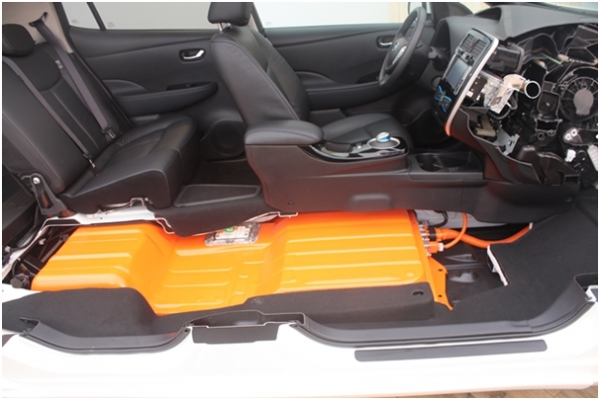A Move to Preempt Electric Vehicle Market

Partnerships between global automakers and electric vehicle (EV) battery producers are booming.
Volkswagen, the world's No. 1 carmaker, has decided to invest a total of 900 million euros to build a new battery production plant in Norway jointly with Northvolt, a battery maker in Sweden, industry sources said on June 17. Volkswagen is also discussing the construction of an additional joint venture (JV) plant with SK Innovation.
Yoon Ye-seon, head of SK Innovation’s Battery Business Division, said during a news conference in May that the company has been in discussion with Volkswagen about setting up a joint venture for about a year. "We have to be tight-lipped about further details because of a business confidentiality agreement," Yoon said.
LG Chem recently announced a plan to set up a joint venture battery plant with Geely Auto of China. The company said it would pursue setting up more joint ventures with global carmakers. LG Chem is already discussing the establishment of joint ventures with several companies behind closed doors and will soon announce the outcomes, industry sources say.
In order to increase battery competitiveness, global automakers are working together not only with Korean battery makers but also with Japanese and Chinese battery makers. They are busy making business ties with other carmakers, too. Toyota has decided to partner with China's CATL, the world's No. 1 battery maker, and plans to expand its EV business by banding together with BYD in China and Toshiba in Japan.
BMW is pushing forward with cooperation with Jaguar Land Rover in order to develop electric vehicle technology. Volkswagen has joined hands with Ford to make its modular electric drive matrix (MEB) a next-generation electric vehicle standard.
Automakers believe that securing high-quality batteries holds the key to taking the lead in the electric car market. Governments around the world put regulations on cars to promote electric vehicles. For instance, the Chinese government urges carmakers to produce 10 percent of their cars as green cars in China. But these pushes for environment-friendly cars face a shortage in battery supply.
"In the past, automakers invested to secure their own competitiveness in the battery sector but in reality all failed. Now they are doing everything they can do to secure more battery volume than advanced technology,” said an official of the electric car battery industry. “Such business ties and alliances between global automakers and battery makers will continue as they enable battery makers to secure stable demand and ease their investment burden due to facility expansion.”


